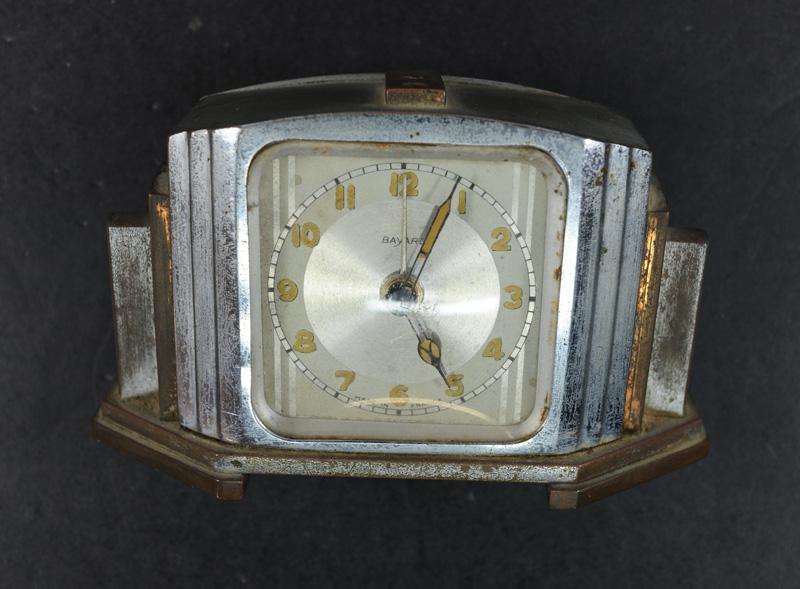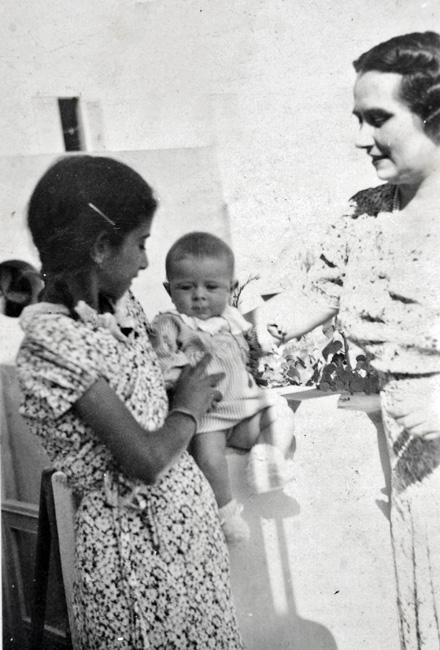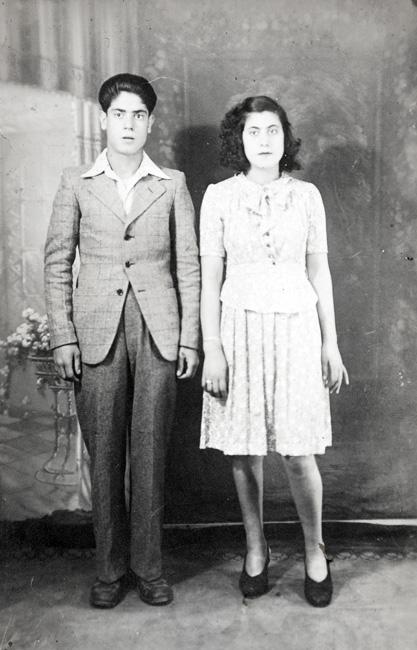





Sunday to Thursday: 09:00-17:00
Fridays and Holiday eves: 09:00-14:00
Yad Vashem is closed on Saturdays and all Jewish Holidays.
Entrance to the Holocaust History Museum is not permitted for children under the age of 10. Babies in strollers or carriers will not be permitted to enter.






In April 1944, when Zmira Abukasis née Borbea was 16 years old, she was sent to Bergen- Belsen, where veteran prisoners offered to sell her a watch in exchange for a slice of bread. Zmira, who did not yet know the camp rules, bought the watch. The severe hunger in the camp quickly taught Zmira that in Bergen-Belsen nothing is as valuable as a slice of bread.
Zmira (Ezmeralda) Borbea was born in Tripoli, Libya on 18 July 1928. As a girl she worked as a nanny for the baby of a fascist Christian. She remembers Mussolini’s visit to Libya in 1937.
Zmira also has clear memories of the British air raids of Libya that began in the second half of 1940. For one-and-a-half years the family stayed in bomb shelters under the walls of Tripoli. Zmira witnessed the destruction of the synagogue in a British air raid. In April-May 1941 the Italians regained control over the region. In December 1941 over 300 Jews with British citizenship, including Zmira and her family, were loaded onto trucks that transported them to the port. Each family was permitted to take only one suitcase. They sailed to Naples in Italy aboard the “Argentina”, which was ordinarily used for transporting cows; from there they were taken to Florence. The women and children were sent to an Italian village where a number of people lived in each apartment. The children would go to the villagers’ houses to beg for food. The men were sent to the Civitella del Tronto internment camp in central Italy.
Following the occupation of northern Italy by Germany in 1943, all three hundred Jews were sent to the Sforzacosta prisoner of war camp. From there they were sent to Bergen-Belsen, arriving during Passover of April 1944. At first, Zmira was unable to bring herself to eat the daily ration of food in the camp, a five-centimeter-thick slice of bread, made from sawdust and potato skins. According to Zmira there was an active barter-system in operation in the camp. She traded a slice of bread in exchange for the watch, as she was not yet aware of the hunger that awaited her. A year later, in April 1945, the camp was liberated by the British. After a period of time in the Displaced Persons camp in Hannover, Germany, the family returned to Libya and later immigrated to Israel from there.
Zmira donated the watch she bought in Bergen-Belsen to Yad Vashem.

Thank you for registering to receive information from Yad Vashem.
You will receive periodic updates regarding recent events, publications and new initiatives.

"The work of Yad Vashem is critical and necessary to remind the world of the consequences of hate"
Paul Daly
#GivingTuesday
Donate to Educate Against Hate


Worldwide antisemitism is on the rise.
At Yad Vashem, we strive to make the world a better place by combating antisemitism through teacher training, international lectures and workshops and online courses.
We need you to partner with us in this vital mission to #EducateAgainstHate
The good news:
The Yad Vashem website had recently undergone a major upgrade!
The less good news:
The page you are looking for has apparently been moved.
We are therefore redirecting you to what we hope will be a useful landing page.
For any questions/clarifications/problems, please contact: webmaster@yadvashem.org.il
Press the X button to continue



